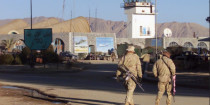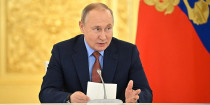Luc Reychler – Prof. Reychler is Professor Emeritus of International Relations, University of Louvain; former Director, Center for Peace Research and Strategic Studies (CPRS), Beglium.
In my presentation I will share an analysis of the current war in Europe and reflect on how Desiderius Erasmus would deal with it.
As one of the greatest scholars of the Renaissance, Erasmus highlighted the folly of religious wars (folly is the pursuit of a policy contrary to the welfare of the people of the states involved), and took on the establishment of his time, whether princes or popes. Their excuses for going to war, were criticized and satirized in writings, as “In Praise of Folly” and “The Complaint of Peace.” He gave peace a voice. His comments, of nearly 500 years ago, are still relevant today, because, although wars are unique, and historically and culturally different, they are universally similar. Wars and counterwars purposefully commit atrocities. (Counterwars are fought against the country that started a war). People, above all the soldiers, are still slaughtered, pierced, burned, shredded, suffocated, tortured, pillaged, etc. And, violence committed during war, is applauded, called righteous and patriotic; the soldiers, dead or alive, get praised with medals. Erasmus warned that wars are attractive for people who have no experience or knowledge about war. His disgust with war is well expressed in the citation “Dulce bellum inexpertis,” or “War is sweet for the inexperienced.”
Before zooming in to the war in Ukraine through Erasmus’s glasses, let me focus on some facets of the war, which are not part of the official discourse in the West. They however invite us to a more balanced, comprehensive and impartial picture.
1. The war was anticipated. Several diplomats and scholars, including myself, expected a war. For example, in 2008, during the George Bush Presidency, William Burns, Ambassador to Russia, who later served as director of the CIA, cautioned that the expansion of NATO to Georgia and Ukraine would have deadly consequences. It would be the brightest of all red lines and create fertile soil for Russian meddling in Crimea and Eastern Ukraine.
2. The war could have been prevented. The West, especially America, made war prevention difficult by (a) her expansionist foreign policy, (b) reducing the art of diplomacy to coercive diplomacy and regime change, and (c) underestimating the risks and costs of an escalating proxy war. Hans Morgenthau’s political realism was replaced by neoconservatism that urged democratic states to establish a new international order through military power, sanctions and regime change.
3. Russia started the war and is the main culprit, but the West and Kyiv are co-responsible. There are several indicators of co-responsibility. In 1990 Ukraine defined itself as a neutral country; the country would not become a member of an alliance. NATO would not expand to Ukraine. During the first 24 years of the independence, Ukraine did not experience war. The American interference in the domestic politics of Ukraine, in the name of regime change, was well underway before the Maidan revolution. This meddling in domestic affairs and NATO’s stealthy expansion threatened Russia’s objective and subjective security. Russia spoke of its existential security. The US and NATO ignored the security issue, arguing that the alliance is peaceful and defensive. This public confession is painfully dissonant with the many wars that America, her allies and NATO waged in the 21st Century in the Middle East and Europe (in Afghanistan, Iraq, Libya, Syria, and in Serbia to support in 1999 Kosovo separatist movement). The increasing political and geographical expansion of NATO to the Russian borders presented Russia with a crisis and a dilemma: to allow this to happen or to stop the expansion in time and thus avoid a ‘fait accomplis.’
4. There is not enough space for an open discussion in Russia, Ukraine and in the West. An impartial, open and critical discussion about prevention and co-responsibility would have contributed to a sound analysis and forecast, and a rational and realistic policy. It would significantly increase the chances of serious peace negotiations. In Russia, a critical conversation about the war and the eight years of civil war in Ukraine that preceded it, is impossible. That is also the case in Ukraine. In the public spaces of the free and democratic West, all the noses are expected to point in the same direction. An open and critical discussion is discouraged by ‘groupthink.’ This is a political-psychological phenomenon that prioritizes agreement and discourages critical commentary and alternatives. Characteristics are: the illusion of infallibility, the conviction that one’s own morality prevails, the rationalization of one’s own decisions; the stereotyping or diabolizing the opponent, and pressure and sanctions to enforce conformity. This undermines the chances of successful and cost-effective decision-making and forms a one-sided and narrowly informed public opinion. In wars, pacifists and peace researchers tend to be sidelined, sanctioned and stigmatized as traitors, dreamers or psychological deviants.
5. The war in Ukraine is a vicious entanglement of an internal-war and a proxy-war with escalatory potential. It’s an escalation of an eight-year-long civil war in a pluri-national country. Fortunately, so far, it has remained a limited war, taking place within the borders of Ukraine. The war and counter-war has created a lot of suffering and destruction. It’s a mega media event. Diplomacy is down. President Zelinski turned out to be a stand-up diplomat and appears almost daily at conferences or in the living room. It is a cynical war, for which the population and the front soldiers are paying . The Donets Basin in the East has been, for nine years, the most blood-soaked area.
6. The costs are high. During a war it is always difficult to find good statistics; they are usually rude and not reliable. The numbers are part of the psychological warfare. For example, not much attention is given to the casualties and destruction during the preceding (internationalized) civil and secession war in the Donbas. On April 9, 2018, the Washington Post reported that the Donbas was one of the worst humanitarian crises in the world. After five years of fighting, more than 10,000 people were killed, 2,800 of them civilians. The war destroyed the infrastructure and a third of the hospitals and schools, homes and election facilities. The number of refugees and displaced citizens was very high. For the current war, Pentagon documents published in April 2023 estimated that Ukraine suffered approximately 125,000 casualties, with up to 17,500 killed in action, while Russians had nearly 200,000 casualties, including up to 43,000 killed in action. The problem with wars, is not only the huge costs (physical, material, economic, social, political, psychological, spiritual and ecological) but also the real and expected benefits and profits. Wars last as long as they are considered profitable by the main protagonists.
7. The war logic prevails. No serious efforts have been undertaken to boost the chances of de-escalation and the building of sustainable peace. Humanitarians and hawks continue to ask for more guns and more war. NATO Secretary General Stoltenberg’s one-liner, “Weapons are the way to peace,” is a fitting title for a surrealist painting of Magritte. The war looks like a huge cage fight, in which the outsider-supporters are safe spectators who empower the fighters and encourage them to win.
8. The war will probably end as a lose-lose operation. Violence may continue for a long time, intensify and even lead to a regional and a third world or nuclear war. The loss is not only for the Ukrainians and fighters on both sides of the battlefield (mostly young men, 40 to 50 percent of whom have no military experience), but also for the whole of Europe. For some spectators in the rest of the world, the war is a European tragicomedy.
How would Erasmus respond to the wars in the 21st Century, and especially the war in Ukraine?
I think he would criticize and satirize the excuses for ongoing war; for example, the misrepresentation of the war as the defense of democracy and of the democratic world. He would also tackle the propaganda on both sides. Above all, he would point at the stupidity of the war and the hubris and mediocracy of the warmongers. Only wise people build sustainable peace. Modern and smart weapons have not reduced the actual and potential atrocities of the war; and the weapons of mass destruction are waiting around the corner. Erasmus would also be a whistleblower and name the princes and kings, and the war profiteers who are responsible for the war. He believes, that what cannot be refuted by argument and fact, can be parred by laughter.
As a constructive pacifist, he would add peace-work to his critical analysis. This implies demanding a cessation of the war, because he considers peace to be more precious than the pursuit of triumph, and a frozen conflict less destructive, less costly and less dangerous than a protracted war. The cessation of the war would go hand in hand with the re-establishment of communication and peace negotiations, but also with development. South Korea is a good example of a country that negotiated a cease-fire with North Korea in 1953 and decided (with the help of the US) to use its talents to become a prosperous country. South Korea reminds us that it is not who wins a war, but who wins the peace that determines their future. A cease-fire in Ukraine, combined with efforts to win the peace, could be a formula to end the war.
Erasmus stresses the relation between education and peace. He would recommend that the Erasmian program for education, training, youth and sports, also give attention to the education of sustainable peace building and the prevention of wars.
Finally, he would encourage people to take part in the building of sustainable peace. This may sound like a dream. But as he said 500 years ago, he would remind us that “there are some people who live in a dream world, and there are some who face reality; and then there are those who turn one into the other.











